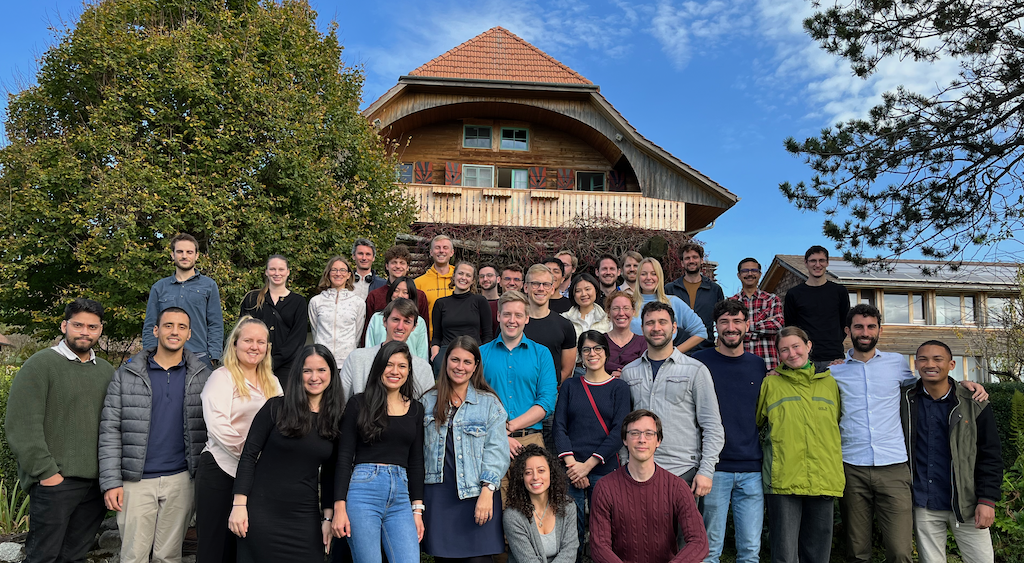
Autumn School 2024: Inventory modelling at scale
October 6-11, Hotel Möschberg, Grosshöchstetten, Switzerland
Course overview
Can traditional Bill of Materials-based LCA inventories meet the demand for high quality decision support at scale? This Autumn School will explore alternative models for inventory creation, deployment, validation, and quality assurance. In a break from previous DdS schools, the focus will not be on Brightway and friends, but on a new tool ecosystem to be developed in 2024 focused on data exchange and compatibility, reconciliation of conflicting observations, automatic validation, and user-friendly reporting and interpretation tools. Participants in previous DdS schools are welcome to apply for this school as well.
As this school will be built on software and methods under heavy development, we don't yet have a lot of detail on how everything will work. However, we do want to have (at least partial) answers for the following questions:
- How can we transparently and reproducibly transform data from one ontology and nomenclature system to another?
- How can we reconcile multiple conflicting observations for the same product system model?
- How can we trace and display data lineage?
- How can we allow for partial dataset definition or data updates?
- Can we automatically generate or validate product system models using AI?
- What best practices can make data easily usable in advanced LCA uses cases or in other subject domains?
While exploring these questions, we will cover the scientific basis, including correlated inputs, sensitivity analysis for parsimonious models, and multiple types of uncertainty, and best practices in software architecture, including documentation standards and tools, testing, data and source version control, linting, and quick tool builders like Streamlit and Dash.
The structure of the school starts with two and a half days of interactive teaching sessions using Jupyter Notebooks. These notebooks include exercises, and we will discuss the solutions in class. From Wednesday to Friday, you will work in groups of around five people and apply these ideas in group projects. Each group will have a dedicated assistant. Groups will present their results on Friday afternoon.
This autumn school is primarily aimed at PhD and postdocs students who are studying or using LCA/MFA/Industrial ecology, but others are also welcome to apply. Students who complete the school will receive a certificate for 2 ETCS credit points. Enrolment is limited to 30 people.
Location
The summer school will be held in the Möschberg seminar hotel, in Grosshöchstetten, Switzerland. This hotel is outside the village, with views south towards the Bernese Alps. Möschberg emphasises local and organic food for its guests.
Python introduction
Some basic understanding of Python is helpful for the school. The Sunday session will be a half-day refresher on Python basics and the concepts needed for school projects.
Starting and ending times
The school starts with lunch at 12:00 on Sunday, and it's most convenient to arrive on the 11:04 train into Grosshöchstetten. The school ends at 16:00 on Friday, though we will offer an Apéro with snacks and drinks for students on Friday evening. You can contact the hotel if you want to stay Friday night, or arrive before Sunday morning.
Language
The summer school will be in English.
Course fees
| Room | Shared Double | Single |
|---|---|---|
| CHF | 1225 | 1450 |
| EUR (approximate) | ~1325 | ~1550 |
Invoices can be issued in EUR, using the current conversion rate. Invoices can also be paid by credit card for an additional ~3% fee.
Course fees includes room, materials, and all meals from Sunday to Friday lunch, but do not include transportation. Single room availability is limited. Full refunds are available up to September 15th, after which only 50% of the course fee will be refunded.
The school is organised by Départ de Sentier, a Swiss nonprofit association which supports open sustainability assessment and public engagement.